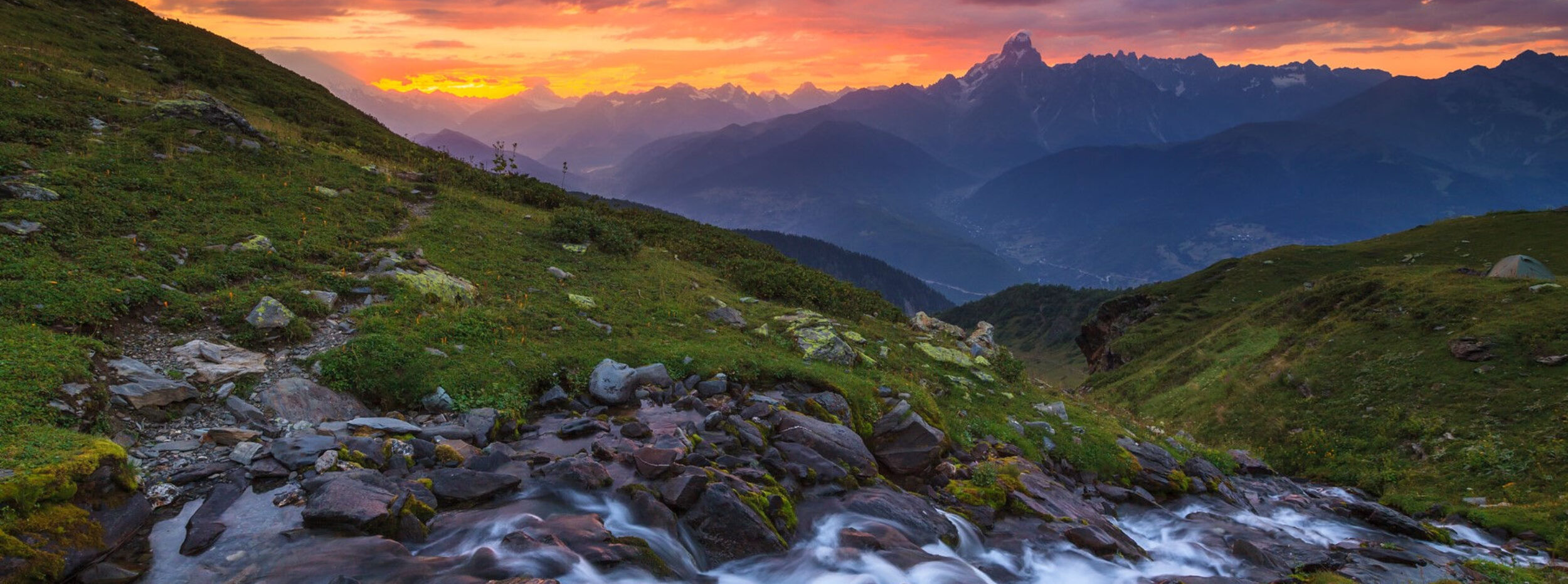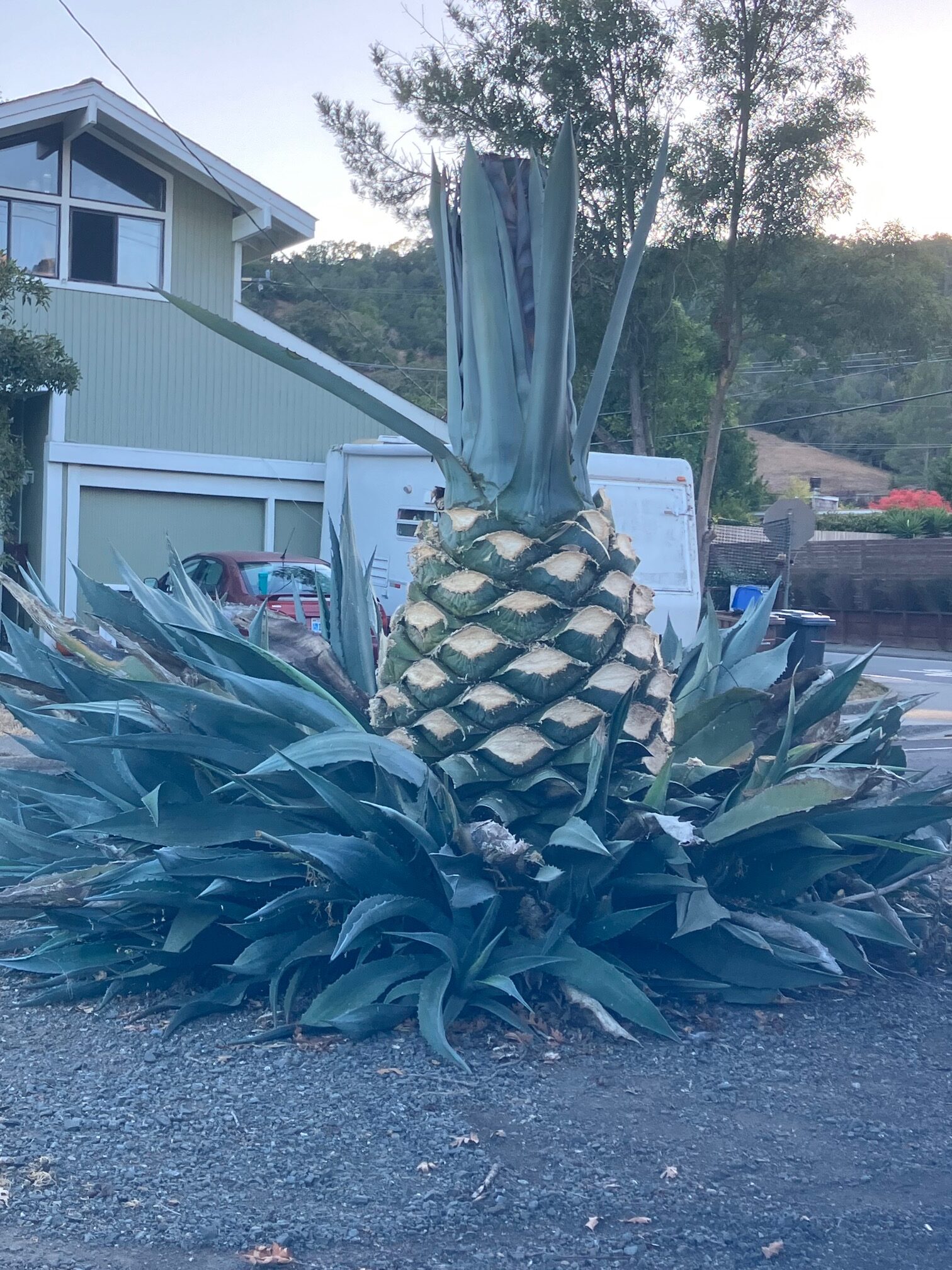Sometimes what breaks our hearts about the lives around us is actually a thing to celebrate, if we see it with new eyes.
Enjoy this 7-minute read, or let me read it to you via the recording at the post of the post!
Scattered throughout my suburban neighborhood is a collection of massive agave plants. Despite their ten-foot circumference and broad, thick, spiked leaves, I didn’t notice them much. Then earlier this year, one at the end of a median near my turn began sending up a massive stalk from its center.
I found myself slowing down when I drove past, rolling my window down to get a better look at what felt both amazing and subtly menacing. This stalk seemed to grow 6-inches a day, like a gigantic asparagus spear on a mysterious, but urgent mission. It reminded me of sci-fi stories I’d heard as a child about plants coming alive and eating people. I would drive away nervously checking my rearview mirror to make sure it wasn’t following me.
Something else remarkable about these plants was how they brought people together. I’d veer off my path when crossing the street to gingerly touch its leaves and stare up at it towering over me. And then I’d notice someone standing near me doing the same.
“They only bloom once every 30 years and then they die,” one man told me. I remembered seeing a smaller agave with a more slender stalk down the road that was just starting to send out a package of buds. “Wow,” I thought. Someone planted all these decades ago, and they are all going to die together. What were they thinking would come next?
“I’m worried about what will happen to this one,” I told an older lady who’d stopped to admire the mammoth with me one afternoon. “It’s reached the telephone wires.” I suddenly felt something akin to what people who climb sequoias to keep them from being felled must have felt. I’m not a physically aggressive person, but if I saw someone coming up to this agave with a chainsaw, I would jump them.
There was something so noble and so vulnerable about this agave being, so courageous and naïve. It was unfolding, boldly, jubilantly in a final display of vitality and hope. It doesn’t understand electric companies. It only understands up and out. I placed my hand on its flank and it was cool, smooth, the texture of bamboo but the diameter of a mid-sized tree and as rock hard as a telephone pole. It was on a mission every thread of its DNA had prepared it for.
And it failed.
Days after expressing my worries to my neighbor, I drove past and the central stalk was gone. There rose unceremoniously just above the top leaves a severed stump, dense, pale, the color of saw dust. Only a few gashes on the ground level leaves hinted at its slaughter. My heart ached for a moment. Then I neatly folded it back up into the place I file all the things our world does. The 30-year aspiration of a collasal agave means nothing compared to some damage to our infrastructure. And we mutilate far more bodies in more gruesome ways every day.
Each time I passed, I felt that struggle to both feel and repress the heartache. I saw this agave sending out new, more slender shoots from its sides. These both inspired and broke my heart anew. Its grandeur was denied, but it would continue trying in a less threatening, more accommodating way. I continued to touch the broad leaves as they began to dry and fold from their tips; already dying while doing what it could with the life it had left.
Last week, I noticed that most of the remaining leaves and all of the shoots had been shaved off. This once elegant creature now resembled a dried pineapple the size of an WWE fighter. Some of the smaller shoots had sent out a few flowering tassels, but I never saw who visited them. I do not know if any seeds formed or were dispersed.
There’s likely much I don’t know or understand about this story – about horticulture, fire risk, telephone lines, aesthetics. But the truest, wildest part of me sensed something criminal, immoral about denying this being its one aspiration in life, especially when it no longer posed any threat or inconvenience to anyone.
I continue to pass this shaved, humiliated agave – struggling to both feel and not feel what it moves in me. I feel its story so deeply in my own heart. Even if we are lucky enough to know what we are for, and then brave and resourced enough to take a shot at it, there are a hundred things that can cut us down: for being in the wrong place at the wrong time, for being too eager and vivacious, for simply not being what others want to see. We keep trying, we keep being cut back, until we are spent. And those who see and love us are often powerless to do anything about it.
Today, I passed the agave and a new thought alighted on my chest like a dainty bit of milkweed: my heartache and despair come from believing I know what this agave’s life was for. Because I believe it lived to flower and cast seeds, I see its castration as an abomination. But perhaps it lived for something else. Perhaps the awe it inspired in all of us who saw – who really saw and loved it – was what it was for. Perhaps despite its mangled form, it sighs relief in its roots knowing that its simple presence moved and touched us – that its life, whatever we may have perceived as hope and struggle, meant something to the rest of us.
I would hope that if someone were watching my life unfold, they would not pity me for not having children. They would not ache over the books I haven’t written, the causes I haven’t championed, the businesses I haven’t founded, or any of the dozens of things I may have created and shared with the world. I hope they wouldn’t weep over the wounds I’ve endured, the ways I’ve tried and tried again and been cut short. I would hope they would simply stand before me exactly as I am and feel a sense of wonder, to say aloud to a friend, “Wow! I’ve never seen anything quite like that.” To touch my leaves with gratitude, to feel a sense of kinship, and to remember me when I’m gone.
Perhaps we put too much stock in both our potential and our struggle. Perhaps the true wonder – and our true value – is simply being alive and being beheld for what we are.
Nancy



Truly amazing. Such thoughts, so well written.
Thanks for sharing. My breath was taken away watching that agave plant. Why was it cut down? Nature is a wonder. I enjoyed going by it many times and watching its progress, such anticipation. There are other smaller ones, but really not as stunning as the big one.
Thank you so much for sharing this adventure with me, Karen. Knowing that you know this being and have watched its life along side me is a warm and lovely feeling. Its a joy to have you in my community!
the agave story reminds me of a primary longing for deep respect for flora, fauna, landscape, and our deep personal need for relationality/place in the natural world … somehow we are encouraged to cut this off, to minimize it, as you have alluded. So let me honor those experiences of loss and pain – and celebration, quiet or dared to be shared – around the communion I want to be primary in my living. Thank you!
Thanks so much for sharing, Frank. Its hard to walk through the world sensitive to the suffering around us, but I find that’s the only way to find the joy and gratitude. It’s wonderful to know we are together in this journey to feel our connection to place – whatever experiences and feelings that brings.
Enjoyed listening to your article. Always astonished by your sensitivity and the care you take in communicating your emotional experience.
Your story caught my eye because I’ve been noticing and appreciating agave plants much more lately. I learned about a cool regenerative ag initiative in Mexico incorporating agave that is very exciting. You might enjoy checking out. It’s called the Billion Agave Project. Really interesting organization as well just north of Mexico City. https://fb.watch/nLMAlLxCm9/?mibextid=NnVzG8&startTimeMs=6596
Great to hear from you, Thorin. I’m glad my connection to this agave being inspired you to reach out and share how my writing impacts you. And thank you for sharing that project! I experience you as a great go-to resource for creative, collaborative regenerative projects. Seeing the impact you’ve had on my life and the communities we’ve shared inspires me to get involved. What may seem small really does matter!
Nancy, I think I mentioned to you a little while ago, I could try to use sone big fancy words to express the effect this piece has on me, but I can just sum it up with, your writing just kind of blows my mind 🙂
Thank you
Hi, Rob. I think the words you chose here go a long way toward sharing the impact! This piece seems to really have struck a chord with folks – thank you for adding your voice to it.